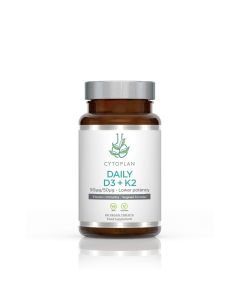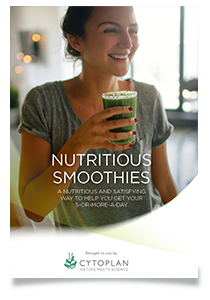Benefits of wholefood supplements
Wholefood is a commonly used phrase which refers to a food which comes unadulterated as it would occur in nature. It is understood that wholefoods not only provide certain nutrients in which they are naturally rich but also provide a food complex with associated amino acids and food factors to facilitate the optimal absorption, retention, and utilisation of those nutrients.
Humans are highly evolved and specialised beings which have evolved to utilise the resources available to us in nature over millions of years. Therefore, nutrients which are available as a wholefood (as they would have been found in nature millions of years ago), are highly bioavailable and bioeffective as well as being safe and gentle. Our wholefood nutrients are fundamentally recognised by the body as a nutrient enriched food providing those synergistic food factors, ensuring a beneficial metabolic outcome.
When choosing a nutritional supplement, it is important to consider optimal efficacy and therefore wholefood supplements are an excellent option.
About our wholefood supplement range
Wholefood multivitamins
We provide multivitamin and minerals in wholefood form, such as our Superfood multi and CoQ10 multi which is formulated with a UK first biodynamic and superfood fruit, vegetable and herb blend. This means that the nutrients within these multis are highly bioeffective and well recognised and tolerated, but also provide the additional benefits of other healthful phytonutrients which are naturally found in the food complex. These additional phytonutrients have many positive benefits to the body and are particularly rich in antioxidants, essential for protecting wellbeing and promoting longevity.
Other wholefood nutrients in our range include:
An organic wholefood supplement. Kelp is naturally rich in iodine, an essential mineral particularly important for thyroid function. This Iodine rich supplement also contains trace levels of a broad spectrum of minerals, trace elements, micro-nutrients, vitamins, prebiotics and carotenoids which occur naturally within the matrix of the plant.
A vitamin C supplement derived from acerola cherry. The fruit of the acerola cherry tree is one of the richest-known natural sources of vitamin C and carotenoids. Acerola cherry also contains a whole array of bioflavonoids, vitamins, minerals and other phytonutrients which support the function and utilisation of vitamin C, making it an ideal food-based source of nutrition. It is also naturally non-acidic and so is very gentle on the digestive system, unlike synthetic vitamin C supplements.
Honey Bee Propolis is a complex food and one of nature’s richest sources of bioflavonoids. Over 180 natural compounds have been identified in this product, which has been used traditionally to support normal immune function. The most active and important constituents in propolis are flavonoids, phenolics and aromatics (oils and acids). The flavonoids are considered to account for much of the biological activity in propolis.
Why are wholefood supplements better for me?
Food sourced vitamins, minerals, and other nutrients such as wholefood nutrients are highly absorbable and bioeffective. They are recognised by the body as a nutrient rich food and therefore the body is much better at recognising the nutrient, allowing it to be absorbed, retained and utilised more effectively.
Wholefood nutrients also come complexed with other food factors which support the function of the specific nutrient as well as possessing their own health promoting functions. As wholefood nutrients come in a fully complexed form, they do not need additional additives, fillers and binders, making them a clean, safe and effective choice.
Do whole food vitamins absorb better?
Wholefood vitamins are recognised by the body as a food source of nutrients. The body’s digestive system is highly evolved and adapted to be able to recognise and absorb these nutrients more readily than synthetic nutrients. It has been shown that wholefood nutrients are more effective than synthetic nutrients and better tolerated, even at a low dose.
What is the difference between food sourced vitamins and synthetic vitamins?
Food sourced vitamin and minerals, such as Wholefood nutrients, are in a form that is naturally found in food. They come fully complexed with additional nutrients such as amino acids and other food factors which aids their absorption, function, and utilisation within the body.
Synthetic nutrients are manufactured nutrients and are not in the same form as they are naturally found in food. Therefore, the body does not recognise them as a food and can find it more difficult to effectively absorb and utilise them. Synthetic nutrients may also need additional products such as excipients fillers and binders to promote solubility and shelf life.








